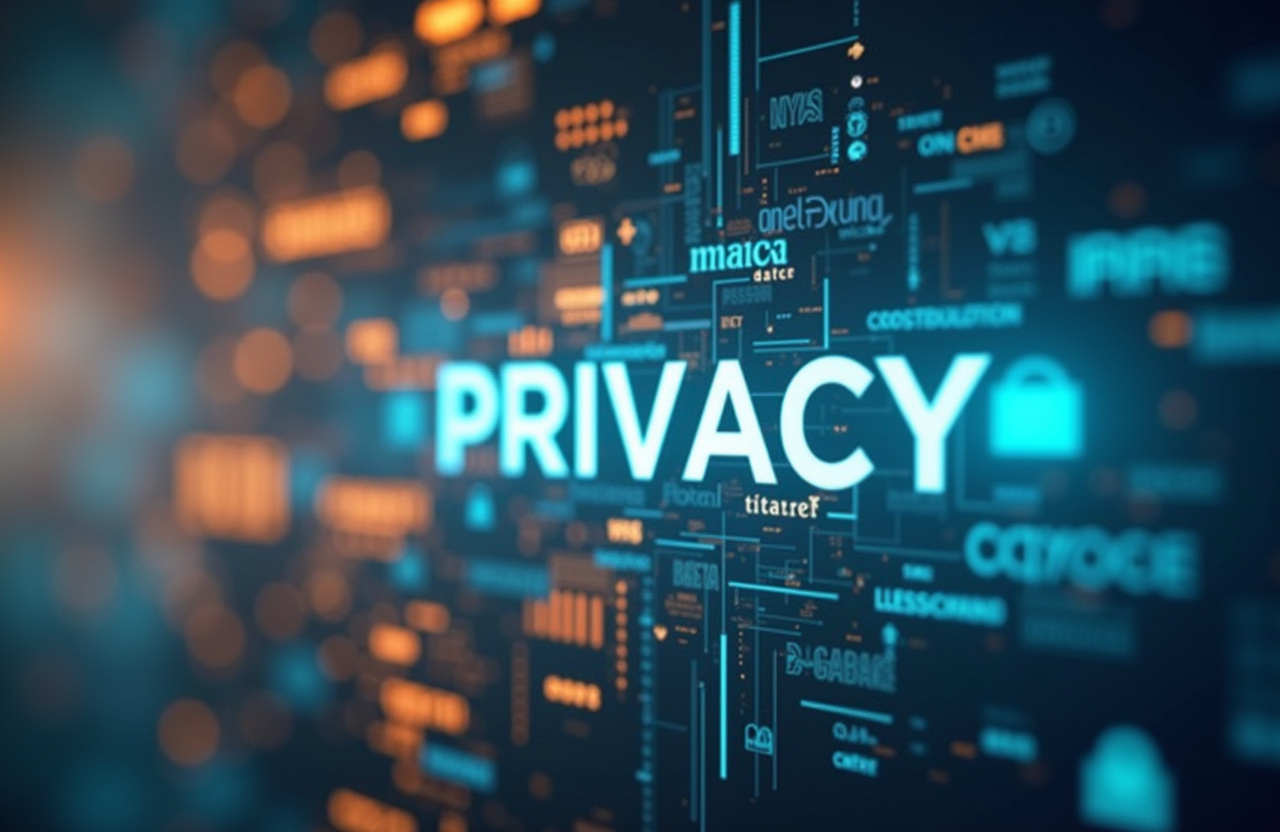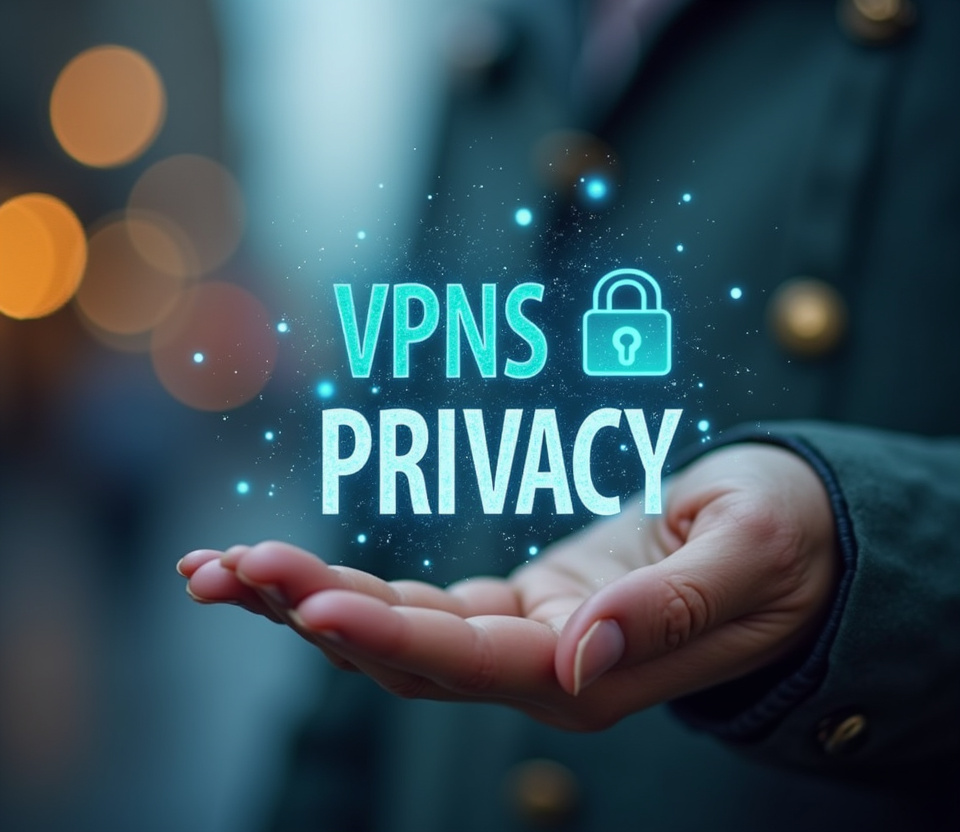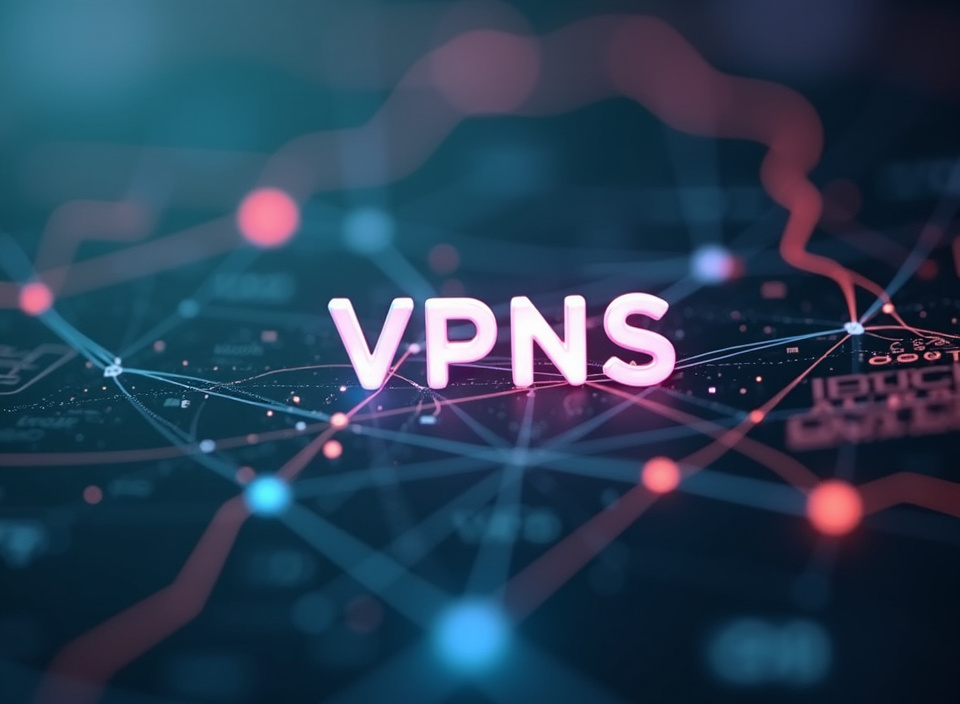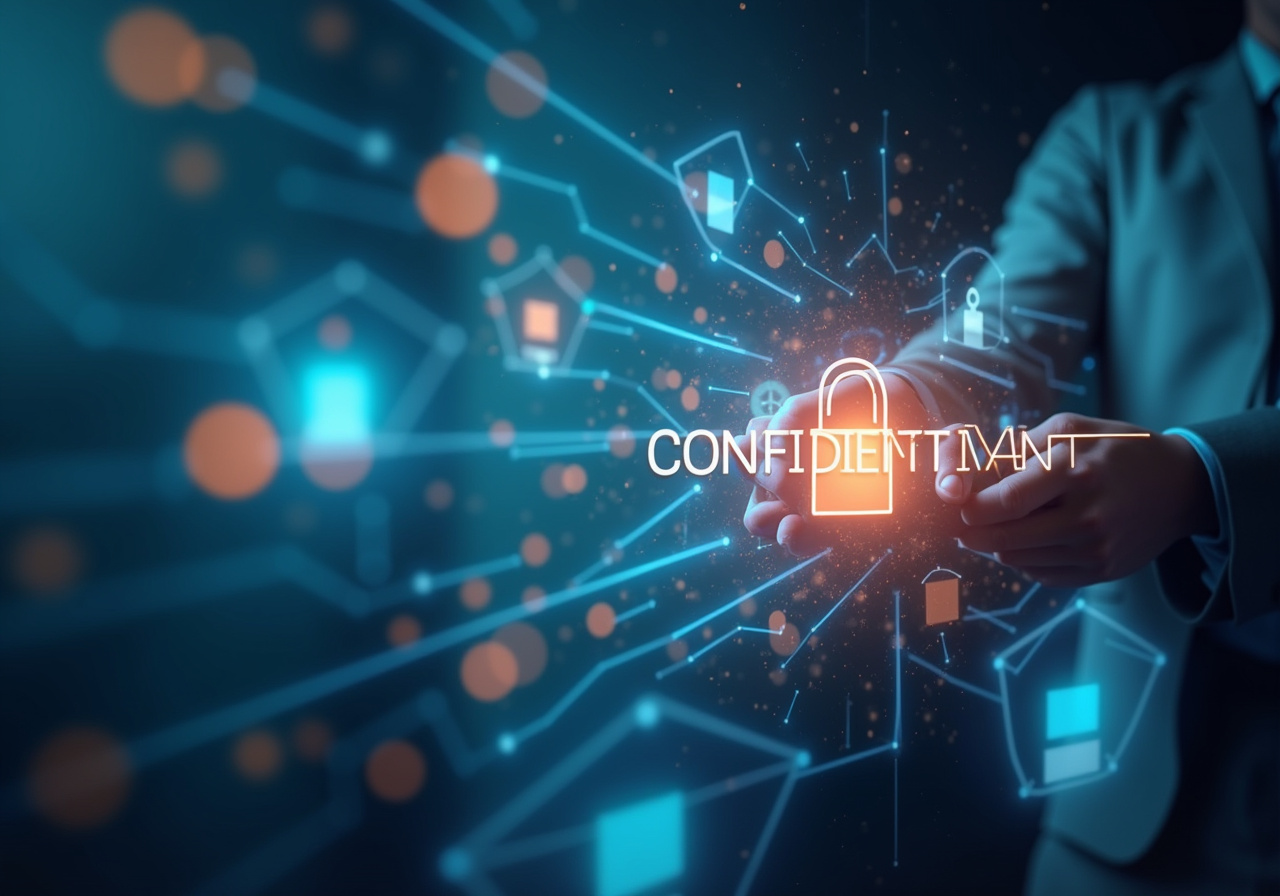VPNs for Cultural Exchange Programs: Protecting Participant Data
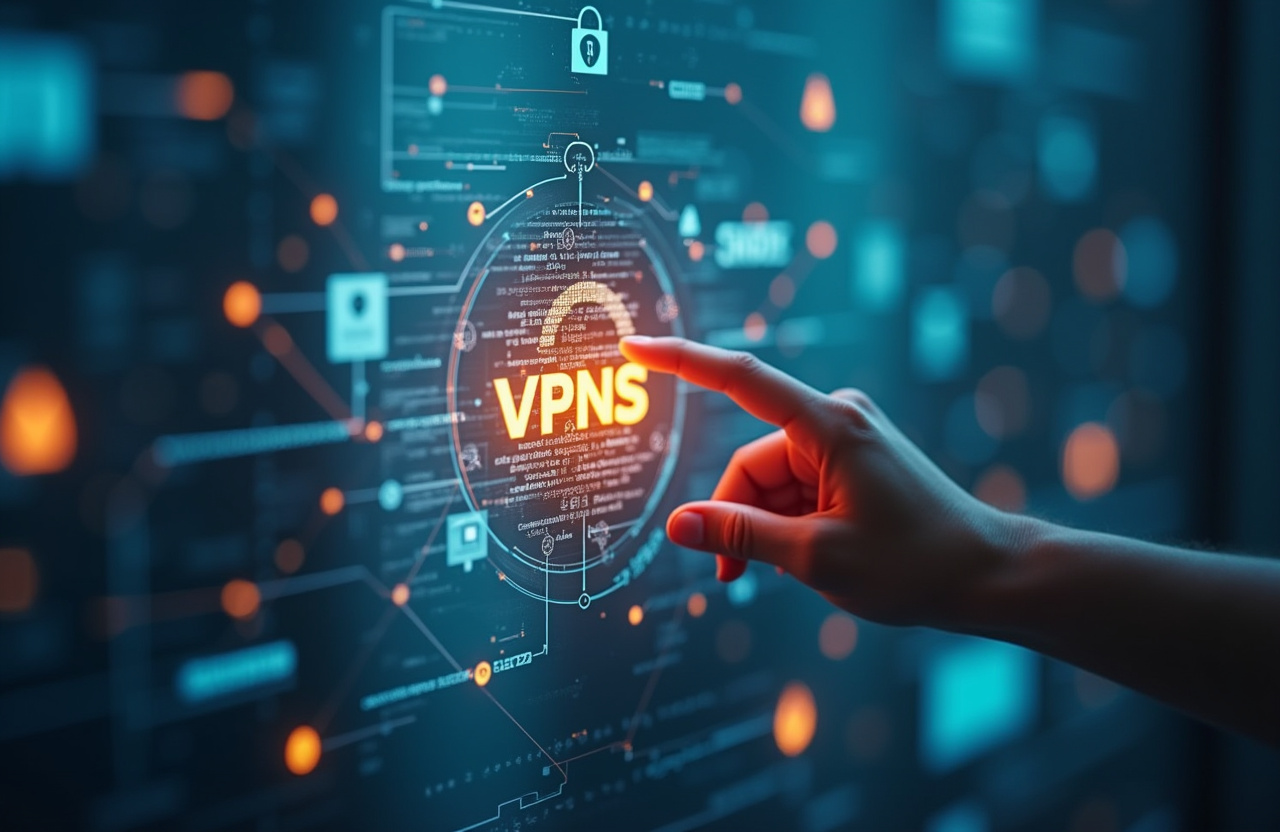
Table of Contents
- VPNs for Cultural Exchange Programs: Protecting Participant Data
- Digital Vulnerabilities in Cultural Exchange and the Necessity of Cybersecurity Measures
- Securing Participant Data in Language Exchange Programs
- Enhancing Security and Privacy of Online Platforms with VPNs
- Continued Security and Privacy
VPNs for Cultural Exchange Programs: Protecting Participant Data
Cultural exchange programs represent invaluable opportunities for individuals to broaden their horizons, immerse themselves in new cultures, and foster intercultural understanding. These programs facilitate personal growth, academic enrichment, and professional development, contributing to a more interconnected and globally aware society. However, the very nature of these programs, involving the transfer of participants across geographical boundaries and cultural contexts, necessitates a robust approach to participant security and data protection.
Increasingly, the digital dimension of these exchanges demands attention, as participants rely on online communication tools and digital platforms for staying connected, accessing resources, and managing their personal information. In this digital landscape, the use of a reliable and secure Virtual Private Network (VPN) becomes paramount to safeguarding participant data and ensuring safe communication throughout the exchange program experience. This article will explore the critical role of VPNs in cultural exchange programs, highlighting their benefits for participant security, data protection, and fostering a secure online environment for all involved.
The focus will be on general principles and best practices, avoiding specific brand endorsements while emphasizing the importance of informed decision-making when selecting and utilizing VPN services for exchange programs. The goal is to empower program organizers and participants with the knowledge necessary to navigate the digital aspects of cultural exchange programs confidently and securely, fostering a positive and enriching experience for everyone involved. The exchange program VPN serves as a digital shield, protecting sensitive information from potential threats and allowing participants to fully embrace the transformative potential of their international experience.
Prioritizing data protection is not merely a compliance requirement, but an ethical obligation to ensure the well-being and safety of participants throughout their journey. The digital age has transformed cultural exchange programs, enhancing communication and access to information, but also introducing new vulnerabilities. Participants are increasingly reliant on digital tools for everything from coordinating travel logistics to communicating with loved ones back home.
This reliance on digital platforms exposes them to risks such as data breaches, identity theft, and surveillance. Therefore, integrating robust cybersecurity measures is no longer an option but a necessity. A cornerstone of these measures is the implementation of a reliable VPN as a means of safeguarding participant information and ensuring secure communication channels.
A VPN acts as a crucial layer of defense, protecting sensitive data from being intercepted by malicious actors while facilitating access to information and communication services that may be restricted in certain regions. The increasing sophistication of cyber threats and the growing global patchwork of data privacy regulations highlight the urgency of addressing data protection concerns within cultural exchange programs. These programs often involve the sharing of personal information across international borders, making it imperative to comply with data protection laws in different jurisdictions.
Failure to do so can result in legal penalties, reputational damage, and a breach of trust with participants. Furthermore, the potential for data breaches and cyberattacks can undermine the integrity and credibility of the exchange program, deterring future participants and partners. Therefore, prioritizing data protection is not only an ethical responsibility but also a strategic imperative for ensuring the long-term success and sustainability of cultural exchange initiatives.
Incorporating a comprehensive data protection strategy that includes the use of VPNs demonstrates a commitment to participant well-being and fosters a culture of security within the exchange program. This proactive approach can enhance the program's reputation, attract more participants, and strengthen relationships with partner institutions. By prioritizing data protection, cultural exchange programs can create a safe and secure online environment that allows participants to focus on their intercultural experiences without fear of compromising their personal information.
This, in turn, contributes to more positive and enriching exchange experiences for all involved, solidifying the value and impact of these programs in promoting global understanding and collaboration. The implementation of an exchange program VPN signifies this commitment, acting as a readily available and easily accessible resource for ensuring participant security in an ever-evolving digital landscape.
Digital Vulnerabilities in Cultural Exchange and the Necessity of Cybersecurity Measures
The concept of participant security within cultural exchange programs encompasses a wide range of considerations, extending beyond physical safety to encompass the digital realm. Data protection emerges as a fundamental pillar of participant security, particularly in today's interconnected world where personal information is frequently shared and stored online. Exchange programs collect a substantial amount of sensitive data from participants, including personal contact information, passport details, academic records, financial information, and medical history.
This data is often transmitted and stored electronically, making it vulnerable to various cyber threats, such as hacking, data breaches, and identity theft. The consequences of a data breach can be severe, potentially exposing participants to financial loss, reputational damage, and even physical harm. Therefore, implementing robust data protection measures is essential to mitigating these risks and ensuring the privacy and security of participant information.
A critical component of these measures is the use of a reliable VPN service. A VPN creates an encrypted tunnel between a participant's device and a remote server, effectively masking their IP address and encrypting all internet traffic. This encryption protects sensitive data from being intercepted by malicious actors, such as hackers or cybercriminals, who may be attempting to eavesdrop on network communications.
By routing internet traffic through a secure server, a VPN also helps to anonymize online activity, making it more difficult for third parties to track browsing habits or identify individual users. This is particularly important in countries with strict internet censorship or surveillance laws, where participants may face risks of political persecution or discrimination based on their online activities. Furthermore, a VPN can provide a layer of protection against malware and phishing attacks, which are common methods used by cybercriminals to steal personal information.
By masking the user's IP address and encrypting internet traffic, a VPN makes it more difficult for attackers to target specific devices or individuals with malicious software. The exchange program VPN, therefore, acts as a crucial tool for safeguarding participant data and mitigating a range of cyber threats, contributing to a safer and more secure online experience. The vulnerabilities associated with using public Wi-Fi networks further underscore the importance of VPNs for participant security.
Public Wi-Fi hotspots are often unsecured, making them easy targets for hackers who can intercept unencrypted data transmitted over the network. Participants in cultural exchange programs frequently rely on public Wi-Fi to access the internet in airports, cafes, hotels, and other public places. Without a VPN, their personal information, including passwords, credit card details, and browsing history, can be easily compromised.
A VPN encrypts all data transmitted over the public Wi-Fi network, preventing hackers from intercepting it and protecting participants from identity theft and financial fraud. Beyond the immediate threats posed by cybercriminals, the use of a VPN also helps to protect participants from government surveillance and censorship. In some countries, governments may monitor internet traffic and censor websites or social media platforms that are deemed to be politically sensitive or culturally inappropriate.
Participants in cultural exchange programs may inadvertently access content that violates local laws or customs, potentially exposing them to legal or political repercussions. A VPN allows them to bypass these restrictions and access the internet freely and anonymously, protecting them from censorship and surveillance. The participant security is highly improved by using the exchange program VPN tool.
Moreover, the anonymity provided by a VPN can be particularly valuable for participants who wish to express their opinions or engage in online activism without fear of reprisal. In countries with restrictive political environments, citizens may face risks of persecution or harassment for expressing dissenting views. A VPN can help participants to protect their identity and communicate securely, enabling them to participate in online discussions and advocate for social change without fear of censorship or retribution.
In essence, prioritizing the implementation of a robust VPN policy is inherently linked to fortifying participant security protocols within cultural exchange programs, serving as an indispensable tool for navigating the complexities and potential hazards of the digital world.
Securing Participant Data in Language Exchange Programs
Safe communication is an integral aspect of cultural exchange programs, enabling participants to connect with family, friends, and program organizers, share their experiences, and seek assistance when needed. However, traditional communication channels like email and instant messaging can be vulnerable to interception and surveillance, particularly when used over public Wi-Fi networks or in countries with limited internet freedom. This can pose significant risks to participant privacy and security, especially when sensitive information is being shared.
A VPN provides a secure and encrypted communication channel, protecting participants from eavesdropping and ensuring the confidentiality of their conversations. By encrypting all internet traffic, a VPN prevents third parties from intercepting emails, messages, or video calls, making it more difficult for them to access sensitive information or monitor communications. This is particularly important for participants who may be discussing personal matters, sharing financial information, or coordinating travel arrangements with program organizers.
Moreover, a VPN can help participants bypass internet censorship and access blocked websites or services, enabling them to stay connected with family and friends back home, access educational resources, and participate in online communities. In countries with strict internet censorship laws, participants may find that certain websites or social media platforms are blocked, restricting their ability to communicate freely or access information. A VPN allows them to circumvent these restrictions by routing their internet traffic through a server located in a different country, effectively unblocking censored content and enabling them to access the internet without limitations.
The benefits of a VPN extend beyond simply protecting communication from prying eyes. It also ensures the integrity of the data being transmitted, preventing malicious actors from tampering with messages or altering information. This is crucial for maintaining trust and transparency in communication between participants and program organizers, ensuring that instructions are clear and accurate, and that sensitive information is not compromised.
For example, if a participant needs to report an incident or seek assistance from a program organizer, they can do so with confidence knowing that their communication is secure and confidential. The VPN for programs ensures that participants can communicate freely and safely, fostering a sense of security and well-being throughout their exchange experience. The need for safe communication is further amplified by the increasing reliance on online platforms for academic and professional activities.
Participants in cultural exchange programs often need to access online libraries, research databases, and collaborative work tools to complete assignments, conduct research, or collaborate with colleagues. However, these online resources may contain sensitive information that needs to be protected from unauthorized access. A VPN ensures that these online activities are conducted securely, protecting participants' academic and professional data from being compromised.
Furthermore, cultural exchange programs often involve participants from diverse cultural backgrounds, who may have different communication preferences and online habits. A VPN can help to bridge these cultural divides by providing a secure and neutral communication platform that protects the privacy and security of all participants. This is particularly important for participants who may be hesitant to share personal information or express their opinions openly due to cultural norms or concerns about surveillance.
The use of an exchange program VPN can foster a more inclusive and equitable communication environment, where all participants feel comfortable expressing themselves and engaging with others. In addition to protecting individual privacy and security, safe communication is also essential for maintaining the integrity and credibility of the cultural exchange program as a whole. Program organizers need to be able to communicate with participants confidently, sharing important information and providing support without fear of their communications being intercepted or tampered with.
A VPN provides a secure communication channel that ensures the confidentiality of program-related communications, protecting the program from reputational damage and legal liability. By prioritizing safe communication, cultural exchange programs can create a more trusting and collaborative environment that benefits both participants and organizers alike.
Enhancing Security and Privacy of Online Platforms with VPNs
Selecting the appropriate VPN for a cultural exchange program requires careful consideration of various factors to ensure that it meets the specific needs and requirements of the program and its participants. Not all VPNs are created equal, and some may offer better security, performance, or features than others. Therefore, it is essential to conduct thorough research and compare different VPN options before making a decision.
One of the most important factors to consider is the VPN's security features. Look for a VPN that uses strong encryption protocols, such as AES-256, and offers features like a kill switch, which automatically disconnects the internet connection if the VPN connection drops, preventing data from being exposed. Two-factor authentication adds an extra layer of security by requiring users to provide two forms of identification, such as a password and a code sent to their mobile device.
A strict no-logs policy is crucial, ensuring that the VPN provider does not track or store user activity. The VPN's server network is another important factor to consider. A VPN with a large and diverse server network allows participants to connect to servers in different countries, bypassing censorship and accessing geo-restricted content.
A server network that is well-maintained and regularly updated ensures optimal performance and reliability. Consider the geographical locations where participants will be traveling and ensure the VPN has servers in those regions for optimal performance. Performance is also a key consideration, as a slow or unreliable VPN can be frustrating to use and hinder productivity.
Look for a VPN that offers fast connection speeds and low latency, ensuring a smooth and seamless online experience. Read reviews and test different VPNs to assess their performance in different locations. A split tunneling feature can be beneficial, allowing users to choose which traffic is routed through the VPN and which traffic is routed directly through their ISP, potentially improving performance for certain applications.
Usability is an often-overlooked factor but is critical for ensuring that participants can easily use the VPN. Choose a VPN with a user-friendly interface and clear instructions. The VPN should be compatible with the devices that participants will be using, such as laptops, smartphones, and tablets.
Providing clear instructions and support materials will encourage adoption and ensure that participants utilize the VPN effectively. Consider offering training sessions or online resources to help participants understand how to use the VPN and troubleshoot any issues they may encounter. Cost is always a consideration, but it should not be the sole determining factor.
While free VPNs may be tempting, they often come with limitations, such as slower speeds, data caps, and weaker security. Investing in a reputable paid VPN is generally a worthwhile investment in participant security and data protection. Consider the pricing plans and features offered by different VPNs and choose the one that best meets the needs and budget of the cultural exchange program.
Explore volume discounts for purchasing multiple licenses for participants. Finally, consider the VPN provider's reputation and track record. Look for a provider that is transparent about its security practices and has a proven history of protecting user data.
Read reviews and check independent security audits to assess the provider's credibility. Selecting a well-established and reputable VPN provider reduces the risk of data breaches or other security incidents. The exchange program VPN choice needs to be researched and adequate for the program needs.
Continued Security and Privacy
Beyond simply selecting and implementing a VPN, cultural exchange programs must also prioritize ongoing training and education for participants on best practices for online seguridad. This includes educating them about the risks of phishing scams, malware, and social engineering attacks, as well as providing guidance on how to create strong passwords, protect their privacy on social media, and avoid clicking on suspicious links. Empowering participants with the knowledge and skills they need to protect themselves online is an essential component of a comprehensive data protection strategy.
Training sessions should be interactive and engaging, incorporating real-world examples and scenarios to illustrate the risks and consequences of online threats. Regularly updating the VPN software and security protocols is also essential to maintaining a high level of security. VPN providers often release updates to address security vulnerabilities or improve performance.
Encourage participants to install these updates promptly to ensure that their devices are protected against the latest threats. Program administrators should also stay informed about emerging security threats and adjust their VPN configurations and security protocols accordingly. Establishing clear policies and procedures for VPN usage is crucial for ensuring that participants use the VPN responsibly and ethically.
These policies should outline the permitted and prohibited uses of the VPN, as well as the consequences for violating the policy. Participants should be required to sign an agreement acknowledging that they have read and understand the VPN usage policy. The policy should emphasize that the VPN is intended for protecting personal data and accessing information securely, and not for engaging in illegal or unethical activities.
Monitoring VPN usage and investigating any suspected security breaches is also an important component of a comprehensive data protection strategy. Program administrators should monitor VPN logs for any unusual activity or suspicious patterns. If a security breach is suspected, it should be investigated promptly and thoroughly, and appropriate measures should be taken to contain the breach and prevent future incidents.
Having a clear incident response plan in place is crucial for minimizing the damage caused by a security breach. Furthermore, cultural exchange programs should collaborate with cybersecurity experts to assess their data protection measures and identify any potential vulnerabilities. Cybersecurity experts can conduct penetration testing, vulnerability scanning, and security audits to identify weaknesses in the program's IT infrastructure and provide recommendations for improvement.
Regular security assessments can help to ensure that the program's data protection measures are up-to-date and effective. Finally, it is important to remember that data protection is an ongoing process, not a one-time event. Cultural exchange programs must continually adapt their security measures to address evolving threats and maintain a high level of data protection for participants.
This requires a commitment from all stakeholders, including program administrators, participants, and IT professionals. By prioritizing data protection and implementing a comprehensive security strategy that includes the use of VPNs, training and education, policy enforcement, and ongoing monitoring, cultural exchange programs can create a safe and secure online environment for all involved, fostering positive and enriching intercultural experiences while safeguarding valuable participant data and promoting safe communication at all times. The commitment to data protection through the exchange program VPN and related protocols ultimately reinforces the ethical foundation of the exchange program itself.
Stay Updated
Get the latest VPN news, tips, and exclusive deals to your inbox.
